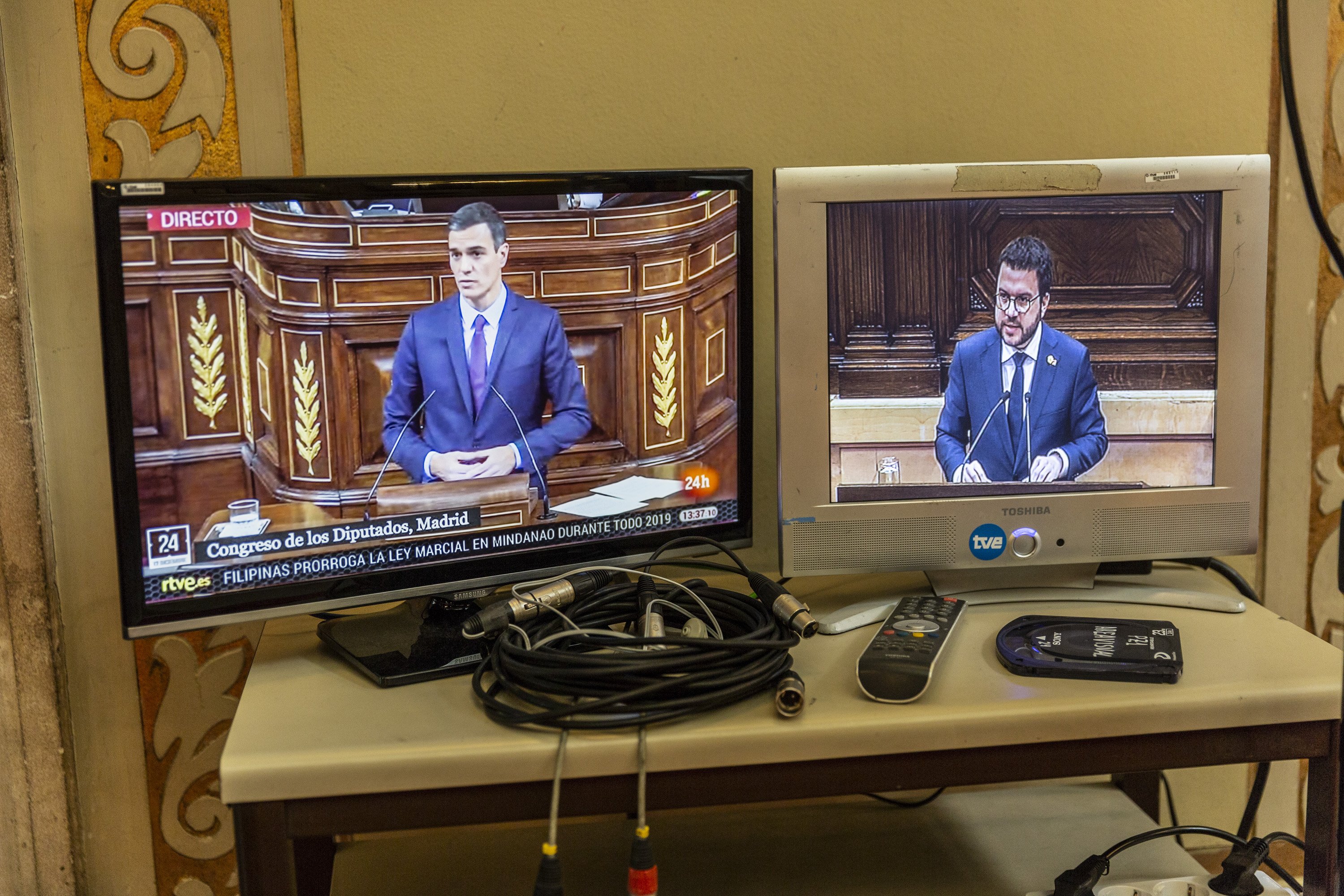When the expectation is for a debate of little importance or interest, the Spanish Congress takes the opportunity to allow groups of students who've applied to do so to enter the public gallery. This Wednesday, the students following the session were varied and numerous. The Spanish government's delegate to Catalonia, Teresa Cunillera, was practically the only authority figure invited. There's always the noise of protests in San Jerónimo street, but today, the loudest group were sailors from Galicia harmed by Norwegian companies. They were shouting: "Spain, do the right thing and defend your people". In this cold and apathetic atmosphere, the Spanish prime minister, Pedro Sánchez, tried to move beyond the singular focus on Catalonia as if it were a tiresome formality and, significantly, the most interesting part was the replies, when the main references were... to Andalusia.
Sánchez, who initially couldn't hide the lack of enthusiasm with which he took to the podium, found himself more comfortable when he took a position attacking PP and Cs over their expected pact with Vox to govern in Andalusia. "They are negotiating with the far right to govern Andalusia with those nostalgic for a time which this country has moved on from, but they should be clear that the path of equality between men and women is irreversible". This is the proof that the interest of the honourable members for today's debate didn't lie exactly in Catalonia, but in other matters. Basically, it was about measuring Sánchez's capacity for resistance, about finding out how long he'll be able to hold out without calling an election, which is what his opponents on the right have called for time and time again, and about scrutinising the each others' varying voting intentions. It didn't end up clear whether Sánchez has escalated his rhetoric with independence supporters thinking about upcoming elections or whether he's switched on automatic to stretch out his mandate as far as possible and to await a miracle.
More police to Catalonia
To escape the Catalan issue which makes him so uncomfortable, Sánchez has diluted the Catalan question, mixing it with Brexit to say that sovereignty and Brexit supporters are a group of liars who are deceiving the people and wasting time and energy, but he was unable to suggest any concrete proposal for Spain and Catalonia to leave the dead-end street. To slow his opponents' momentum, he promised greater "firmness and strength" with sovereignty supporters, repeating his announcement that he'll send more police to Catalonia if necessary to repress pro-independence mobilisations, a way of saying it will be nothing short of Rajoy and his Tweety Pie and "go get 'em". He also alluded to a new 155 when he believes it to be necessary. It was a proper threat, but said without much conviction, like the person who says that the person who gives the warning isn't a traitor, and obviously he didn't satisfy anyone and annoyed everyone. In the corridors of the Congress, the deputy PM Carmen Calvo even hurriedly lowered expectations, saying that the blood won't reach the river. And then Casado, running high after the deceptive result from Andalusia (PP will govern despite having gained its worst score), has decided to make a raise in the cruelty auction. He continues to treat Sánchez as an anti-Spanish agent and has demanded he apply article 155 to intervene in the Catalan government's finances, its public media and to take back powers in security (control of the Mossos police force), justice (prisons) and education. More or less what Franco did in 1939 overturning the Statute of the Republic. Rivera had a weak day, he added urgency to the 155 auction, but made it clear that what he's really interested in now is for there to be an election in Spain as soon as possible.
And the Catalans? Compared with the competition between Sánchez, Casado and Rivera to see who can be crueler with Catalan independence supporters, Joan Tardà and Carles Campuzano looked like lambs ready for the slaughter, who were asking for dialogue and understanding. The only thing they didn't ask for was mercy. "We're still in time", said Tardà (ERC), the understanding being in time to avoid something worse coming along, who knows for whom it would be worse. "Don't demonise us," pleaded Campuzano (PDeCAT). Surprisingly, the dramatic situation of the political prisoners on hunger strike did not merit a comment from ERC's spokesperson and barely a mention in passing from PDeCAT's spokesperson which nobody bothered to listen or reply to. Catalonia is still not independent, but emotionally Spain and Catalonia seem to be two planets orbiting in different galaxies, ever further away from each other.

